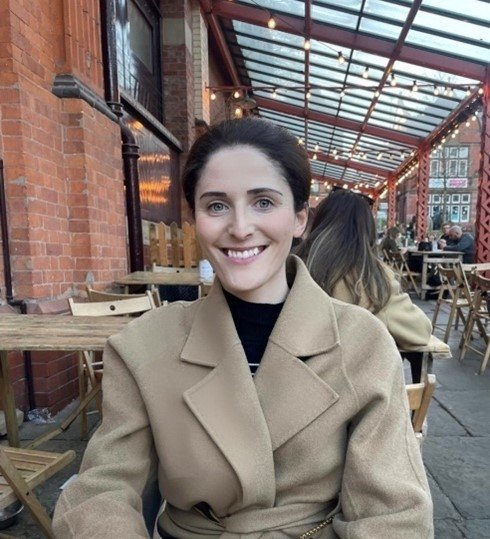Chloe Flascher of Withers LLP named NGML of the Month (April)
Chloe is an associate in the Media & Reputation team at Withers LLP. Born and raised in Manchester and a graduate of the University of Birmingham, her recent clients include celebrities, UHNW and HNWI individuals, high profile businessmen and women, corporate bodies, private equity firms, charities, and chief executives.
She has been highlighted as a recommended lawyer in reputation management by Legal 500 2023. She has also recently authored articles on generative AI which were published by the New Law Journal (“Hallucinations: Fact vs Fiction”) and Solicitors Journal (“Seeing Is Deceiving: Manipulated Digital Content, Deepfakes And The Law”).
Find out more about Chloe and her journey into media law below.
1. What made you fall in love with media law?
I think it’s important to work in an area where you yourself see and feel the context and day-to-day impact of the laws you are applying. Media and information law is the perfect animation of that. I have always been acutely interested in understanding the reputational risk faced by individuals and companies with a predominantly online presence. I have also always been fascinated by the historical role of the UK media as a political actor.
When I secured a paralegal job at a leading London media litigation firm in 2017, I knew I had found my niche. This interest grew further during my training contract with the firm.
Having worked in reputation management for a few years since qualification now, I especially enjoy the snippets of knowledge you acquire during media law disputes. One example is the insights into the risk appetite of certain publishers and how the editorial decision-making process differs publisher to publisher. Some areas (such as libel and data protection) are also very technical areas in terms of the legislative framework within which they operate. It is a cerebral area of law which really keeps you on your feet and I enjoy that.
Work in this area does not always involve the media though. It is really just helping clients in the handling of their information, whether or not the media are involved.
2. Which new law/s enacted in your lifetime has had the most impact on your clients?
Back in 2005, the emergence of the tort of misuse of private information in England and Wales has to be right up there as one of the most impactful though its function in protecting human dignity and autonomy under Article 8 of the HRA 1998 (as opposed to the law of confidence which generally serves to protect secrecy). I have been on some extremely interesting privacy cases for clients who have suffered real damage but who would not have had recourse under the laws of confidence, libel, or data protection.
3. Since starting your legal career the press landscape / how journalists operate has changed dramatically. What trends have you noticed?
The fact that publishers face risk of displacement by social media is very much noticed. You see this in the way that once a paper has published an article, the author or journalist now tends to publish a hyperlink to it post publication on social media (usually on 'X') with additional text. Interestingly, I have noticed that journalists then tend to make remarks on those social media points about the publication but can stray much further than the actual story. Another change I have noticed is for journalists to approach individuals for comment prior to publication in more informal channels, for example via direct message LinkedIn. You of course have the sophisticated journalists who have clearly done a solid job of explaining their intended story and have made a real attempt to show the intended claims and what they are asking, but I would also say that in the past few years pre-publication enquiries by certain journalists have become increasingly vague with very little to no information about what story it is they intend to publish.
Realistically, saying that you practice “media law” can be a bit of a misleading term, particularly when a big portion of your work involves non-media opponents or clients who are experiencing issues involving non-traditional forms of media such by citizen journalists or on podcasts rather than print or online.
4. What do you believe to be the biggest challenges facing media lawyers in the next 5 years.
The main challenge for media lawyers will be ensuring that we are provided the opportunity to input meaningfully into the debate around Strategic Lawsuits Against Public Participation ("SLAPPs"), and as well as ensuring a real understanding of the practical impact of the Strategic Litigation Against Public Participation Bill, if and when it is enacted. Media lawyers will also need to be careful to ensure understanding of the SRA guidance on the topic. This already is an important area to watch for both Claimant and Defendant media lawyers alike.
Understanding the risks and following the opportunities created by AI generated content and helping clients understand the same will also be one to watch, in addition to following the impact which the Online Safety Act 2023 has on social media companies and its users.
5. What advice would you give to aspiring lawyers?
Life moves in circles and I honestly believe that if you work hard, pursue the opportunities which make you feel genuinely excited and be yourself in the process, you can’t go wrong.
Chloe Flascher, Withers LLP
